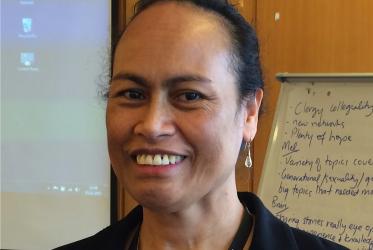Displaying 161 - 180 of 205
12 June 2016
USA Racial Justice Accompaniment Visit
18 April 2016
International affairs facilitator reflects on pilgrimage
31 March 2016
Symposium focuses on religion, violence, extremism
04 February 2016
Church challenge: Welcoming "strangers" in a climate of fear
18 November 2015
Congolese church leader speaks on DRC electoral process at UN event
17 September 2015
WCC condemns mass killing in Charleston
18 June 2015









